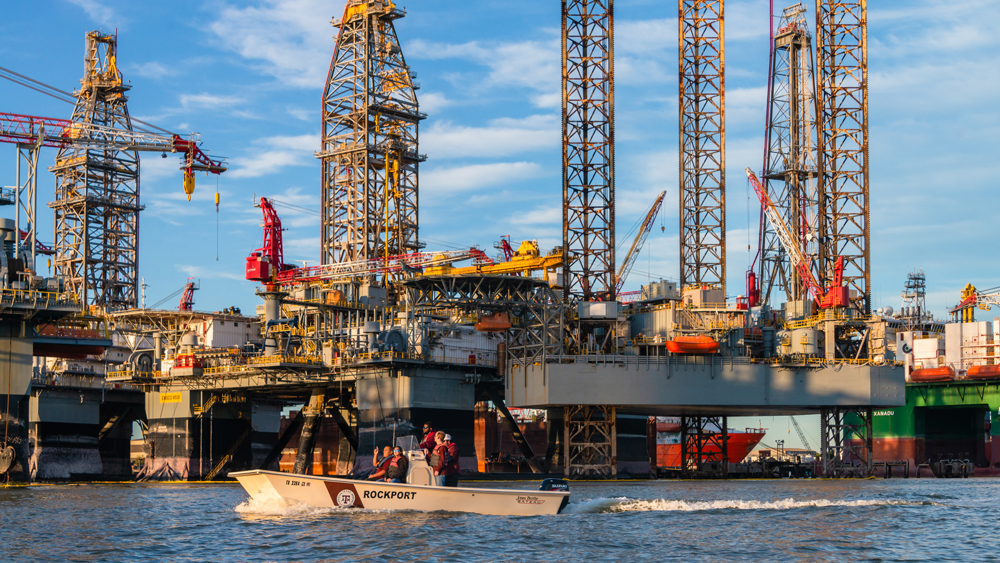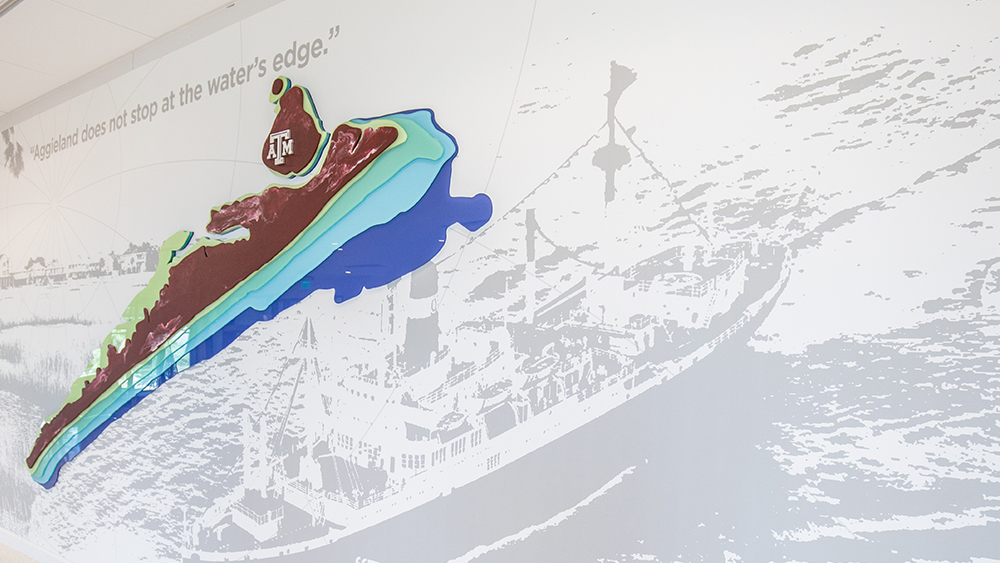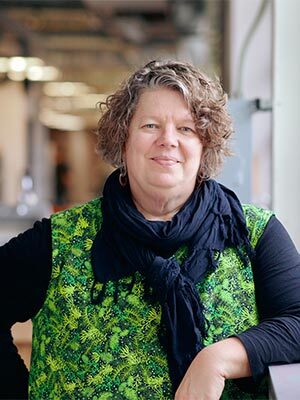
Program Structure
Q. How long does it take to complete the new non-thesis Master of Science in Ocean Engineering degree program?
A. As with every degree program, the length varies depending on how many credits are taken per semester. The program can be completed in less than one year, if taken full-time. All required credits can be taken over one fall semester, one spring semester, and summer sessions.
Q. Do you allow course transfer credits?
A. Transfer credits are accepted under the normal College of Engineering regulations and rules for the allowed number of credits (up to 9 credits in certain cases). However, it must be decided on a case-by-case basis with a graduate advisor to make sure transfer credits are deemed equivalent to the courses offered in the program.
Application
Q. How do I apply?
A. You will complete an EngineeringCAS application. You will be required to answer a variety of questions, attach a resume/CV, 3 letters of recommendation, and 2 essays. You do not have to complete the application in one session and may access it as many times as needed until you are ready to submit.
Q. How much does the program cost?
A. Information on the estimated cost can be found on the university’s Cost of Attendance page.
Q. Am I considered a domestic or international student?
A. A domestic applicant is a resident or permanent resident of the United States (or applicant for permanent residency). If you do not meet that criterion, you are considered an international applicant.
Q. How are the letters of recommendation submitted?
A. Applicants will provide the evaluators’ contact information through the EngineeringCAS application. An email will be sent to the evaluator with instructions on how to submit their letter of recommendation.
Q. Do I submit unofficial or official transcripts?
A. You may upload an unofficial transcript for the application process. If selected to enroll in our program, an official transcript must be sent to the Texas A&M Admissions office.
Financial Assistance
Q. Are there scholarships, fellowships or financial aid available?
A. A select number of $1,000 fellowships are offered to students enrolled in this Master of Science degree on the Galveston Campus. These Galveston fellows are eligible for additional scholarships, which can range between $6,000 and $10,000 in financial assistance per individual. For further information, contact our graduate advisor, Caleb Mullins.
Additionally, there are three different financial aid applications available for students on either the College Station or Galveston campus, depending on your residentship and residency. Learn more about financial aid applications by visiting the university's Apply for Aid webpage.
Information on available scholarships can be found on the university scholarship page.

Q. I am a veteran or active duty military member. How do I get information on benefits?
A. Texas A&M University is a national leader in service to our students who are veterans, active duty, military dependents and survivors. Information can be found at Aggie One Stop military education benefits.
Q. Are there payment plans available?
A. Yes, Texas A&M University offers payment plans for students. More information on payment plans can be found through the Student Business Services office.
International Students
Q. Am I considered an international student?
A. You are an international applicant if you are not a resident or permanent resident of the United States (or applicant for permanent residency).
Q. My transcript is not in English, will you accept it?
A. If your institution does not issue a transcript in English, you must submit the native language transcript with an official English translation. Official translations are prepared by a recognized translation service and include all original seals and/or signatures.
Q. Is financial aid available for international students?
A. There are different types of financial aid available, depending on your citizenship. More information can be found on the Aggie One Stop website regarding international students.
Q. Do I need to complete a Proof of English Proficiency?
A. If your native language is not English, you are required to submit proof of English proficiency to be eligible for review. If you are a resident of one of the countries listed on the Texas A&M Admissions international graduate webpage, you will be exempt from the English proficiency requirement for admission and be considered English Language Proficiency (ELP) Verified.
A minimum IELTS score of 6.0 overall and a minimum TOEFL score (from a test date within two years) of 80 internet-based testing (i-BT) English proficiency can also be demonstrated by:-
A minimum Pearson Test of English Academic score of 53
-
A GRE Verbal Reasoning score of at least 146 (subject to departmental approval)
-
Completing all years of a Bachelor's degree or higher at a U.S.-accredited university (subject to departmental approval)
-
Acquiring alternative verification from the Graduate and Professional School via departmental request. An international graduate student holding a master's degree from a U.S.-accredited university qualifies for alternative verification.
About the Program
Q. What is this program about?
A. The non-thesis, 30-credit-hour Master of Science in Ocean Engineering provides an advanced education and career preparation for students and professionals interested in better understanding ocean and coastal systems as a tremendous natural resource and engineering design challenge. Graduates will have the necessary knowledge, skills and network to become experts and leaders in the ocean and coastal engineering field on a national and international level.
Q. Are there opportunities to specialize within the program?
A. This degree offers advanced courses in core areas of ocean engineering, such as offshore systems, coastal engineering and fluid dynamics, as part of the required coursework. Technical electives, directed studies and research credits allow for ample opportunities to delve deeper into specific topics and areas.
Students can choose from a large variety of technical electives covering offshore systems, wave and fluid dynamics, ocean and subsea vehicles, coastal and offshore structures, coastal measurements and sediment processes, and other special topics related to data science and advanced structural analysis. In addition, the newly created graduate curriculum and certificate program for Natural Marine Processes in Engineering Design offers specialization options for those students interested in coastal engineering with natural and nature-based features and processes.
Q. Who is this program geared toward?
A. This degree is perfectly suited for students with recent engineering undergraduate degrees in ocean engineering, mechanical engineering, civil engineering, naval architecture, marine engineering or other related engineering disciplines with a desire to solve problems related to water waves and hydrodynamics, ocean and coastal structures, surface and subsurface vessels, sediment transport and natural hazards. In addition, the degree program provides a perfect continuing education opportunity for engineering professionals already working in ocean and coastal engineering-related industries, consulting firms or government agencies.
Q. What can graduates do upon completing this degree?
- Apply mathematics, statistics, hydrodynamics and structural design knowledge needed to solve advanced ocean and coastal engineering problems and design challenges
- Design offshore floating and moored structures and vessels needed for traditional and renewable energy production (offshore oil and gas platforms, floating wind turbines, wave and tide energy converters, etc.)
- Understand the complex processes of wind, waves, currents, water level changes and sediment transport affecting our coastal systems and how to create engineering solutions needed to reduce the risk of flooding and erosion, as well as to protect natural and infrastructure assets in coastal areas
- Start rewarding careers in the offshore energy sector or coastal engineering field, including engineering consulting and design and government agency work, or continue your graduate education toward a Ph.D. degree in ocean engineering
Graduate Advising
Peggy Rutkowski
- Program Specialist IV, Ocean Engineering
- Office: HEB 124
- Phone: 979-458-5523
- Email: peggyr@tamu.edu
